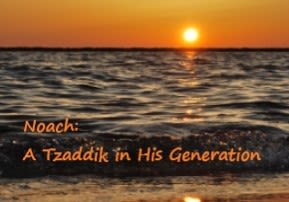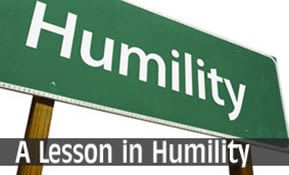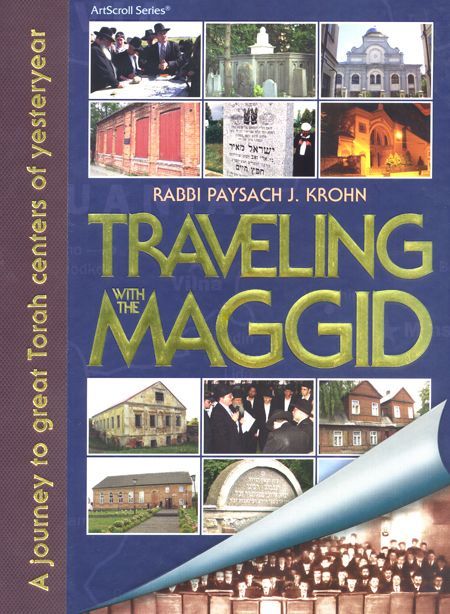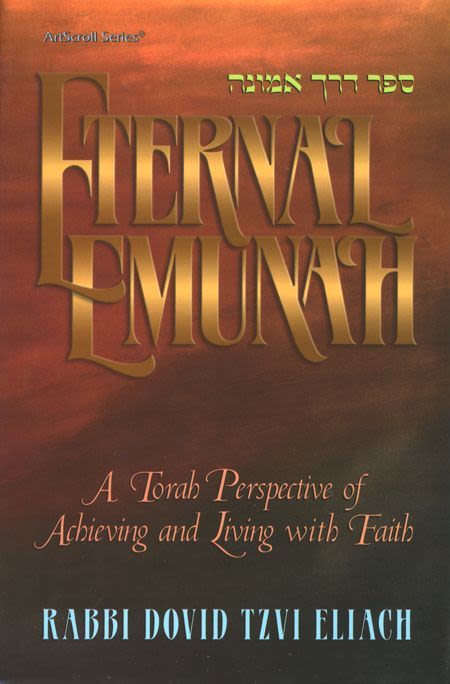
Noach: A Tzaddik in His Generation
Ideas that great Torah scholars struggled with years ago, are the topic of every day conversation now...

The Zohar teaches that a Jew usually juggles two emotions. On the one hand, we are suffused with the joy of our being Jewish: we are the beloved children of the King; we cannot fail; we are part of His cosmic plan to fix creation. On the other hand, the reality of life here in "Olam Ha’Asiyah" (this lowest ‘World of Formation’) causes us to feel the pain and humiliation of unfulfilled spiritual and physical destinies. We are, at once, sad and happy. Such is the lot of the Jew until the revelation of the Final Redeemer. And such is the capacity of our soul, to sing with tears and cry with laughter.
We see this reflected throughout the Torah. Referring to Noach, the Torah teaches that he was a Tzaddik in his generation. Rashi comments that this can be interpreted as either a compliment or as criticism. In his generation, compared to the rest of humanity at that time, Noach was a Tzaddik, but had he lived in the time of the true Tzaddik, Avraham (Abraham), he would have been considered an ordinary individual. The flip side is, despite the influence of his wicked generation, Noach remained true to his ideals, a Tzaddik. He would have been even greater, however, had he lived under the glorious influence of Avraham.
We are taught to always judge favorably. Why, then, should we allow for the possibility that Noach wasn’t a Tzaddik? If there is a way of bringing him into the category of Tzaddik, shouldn't we do so?
What is a Tzaddik? The colloquial definition of a Tzaddik includes anyone who is moral, good, or happens to give you a lift to the train that morning. Tzaddik is a term often used to praise someone who, in our subjective eyes, has excelled. We call our kids Tzaddikim. We call our friends Tzaddikim. In contrast, there is the True Tzaddik, "Tzaddik Yesod Olam." That Tzaddik whose soul is so lofty, so connected to Hashem, that he literally keeps the world alive. The Tanya teaches that, in general, a Tzaddik is born into his role. His soul is not just more refined or more worked on than ours. He is a different creation. We are all aspiring to be the kind of Tzaddikim who keep their souls pure. The verse teaches "Ve’Amech Kulam Tzaddikim," "and your nation is completely righteous." Each of us can become a Tzaddik, as opposed to an evil person, yet the True Tzaddik is something different. This concept needs to be understood and integrated, since much depends on each of us finding the Tzaddik to whom our soul relates, and then clinging to that Tzaddik.
The Search for a Tzaddik
The search for a Tzaddik becomes complicated as we reach the end of days. The ultimate Tzaddik will be the Mashiach, who will be the all inclusive Tzaddik. We will all eventually agree that the Mashiach is on the level of "Tzaddik Yesod Olam," and we will draw our Torah understanding through him.
Every true disciple of a Rebbe considers his Rebbe to be his Tzaddik, and this is how it should be. The Gemara tells how the students of Rava said the name of Mashiach is Rava and the students of Abayei said that name of Mashiach is Abayei. We also are beginning to understand – B'ezrat Hashem – that each Tzaddik is an authentic pipeline back to Moshe (Moses) and that there are many Tzaddikim in each generation. Therefore, we must give our fellow Jew the space and respect to attach himself to his chosen Tzaddik.
In past generations, soul searchers would seek out their soul master. There were many great masters of the revealed and of the hidden aspects of Torah, and each person searched for that master who he felt understood his essence, and then entrusted his soul to him. Part of the nagging, at times unconscious pain that we walk around with today comes from this longing for our Soul Master, a master who reads our soul like an open book, knows where we have been, where we need to go, and how to bring us there.
Does such a master exist today? For a Chassidic Jews, this is not a question. Each group lives with their Rebbe as Soul Master. The seforim and teachings of the Rebbe are the maps that guide every aspect of a chassid’s life. If the Rebbe is still is this world in a physical state, how fortunate for that searcher – he can physically speak to his Rebbe and hear Dvar Hashem, the words of Hashem.
Mashiach
But there is still that ache in the heart of every Jew for the National Universal Tzaddik. The entire world will accept his Teachings, and he will direct every aspect of global life. There is Noach the Tzaddik, on all his levels, and, then, there is The Tzaddik. They are from different worlds, and one does not diminish the uniqueness of or necessity for the other. When Mashiach our Tzaddik arrives and is revealed, the Tzaddik aspect of each of us will resonate with his soul. He will be familiar to us, a part of us, and a revelation of what we are and a definition of a Jew. He will be the yardstick by which we measure every good thing in this and all higher worlds.
Why talk about him, our Tzaddik Mashiach? Why arouse this longing for the perfect world? Would we not be better off just living our lives without thinking about the future?
According to the teachings of Chassidut, thought creates reality. Rebbe Nachman of Breslov taught the method of visualization that is a powerful tool currently in use by healers to achieve transformative changes. The Baal Shem Tov taught that you are, literally, where your mind is. Being in the mindset of Mashiach our Tzaddik brings us to his space, and brings him closer to ours. The Ramchal taught that we were created and sent into this world to experience pleasure, the highest form of which is closeness to Hashem, yet the verse says, "Adam l’amal yulad" "A person was born to toil and labor". The Zohar explains that to achieve closeness to Hashem, we must arouse ourselves to draw close to Him. When we yearn to come close to Hashem, to feel His presence, to give Him pleasure and receive clarity from Him, and make every effort to actualize this, it is called an awakening from below – Itaruta D’litata. This in turn stimulates an outpouring of shefa (bountiful flow) from Hashem – Itaruta D’li’aylah. Hashem, as it were, enjoys when we yearn for His closeness and when we make any and every effort to achieve this closeness. This can easily be understood by any couple in love. Giving the smallest gifts, the cutest card, remembering favorite flavors, are all powerful glue, when done with a genuine desire for closeness.
The Upper and Lower Waters
The floodwaters consisted of lower waters, from deep under the ground, which bubbled upward and mingled with the waters from above, which came down as rain. The lower waters are a symbol of the longing of mankind in general, and the Jews in particular, to rise above the physicality of this world. The upper waters were the outpouring of shefa (bountiful flow) from Hashem. The lower waters were the Itaruta D’litata, the arousal from below, from us. The upper waters, Hashem’s response, were the Itaruta D’li’aylah.
The generation of Noach was supposed to receive the Torah. They were potentially elevated souls, and the Mayim Chayim of Torah yearned to descend. Their vessels, however, were not able to contain the holiness of the Torah. They had corrupted and polluted themselves with evil behavior. They had no boundaries. Theft and immorality had become a way of life. AS a result, the potential waters of Torah became the destructive waters of the flood.
The world was cleansed in the mikveh of the flood. This generation was later reborn as the generation of the Jews of Egypt, and the soul of Noach returned as Moshe. The cleansing of Egypt, as well as the borders put up by the Jews themselves in Egypt, finished the process of tikun; after they were cautioned to guard carefully the boundaries of Mount Sinai, they achieved their life’s goal and received the Torah.
Parshat Noach forces us to define the parameters of a Tzaddik. He is at once a personal Tzaddik and yet totally connected to the entire cosmos. He elevates, teaches and purifies with his actions, but more significantly, with his Being. He lives in each generation, and waits for the opportunity to save the generation, to reveal that there is nothing other than Hashem. He has no need for a private life, yet he has one, elevates it, perfects it and is the image that we all look to as our mirror.
In this week's parsha, the Torah teaches that the floodgates opened in the six hundredth year of the life of Noach. It is here that the Zohar reveals that the light of Mashiach, our Tzaddik, will begin to come down (upper waters) in the six hundredth year of the sixth millennium, accompanied by the revelation of secular, technological, worldly wisdom (lower waters). The Vilna Gaon said that this process began in the secular year 1840, and he heralded each advance in science and technology as another tool to help us understand the mystical teachings of the Torah.
During these times, the light of Mashiach, our Tzaddik, comes down slowly, as each concept in Kabala becomes understood, integrated and natural. Ideas that great Torah scholars struggled with years ago, are the topic of every day conversation now. This is all the light of Mashiach, our Tzaddik.
Bitul
The middah (trait) that is essential to the essence of the Tzaddik is bitul (self-nullification). We bend our will and understanding before the greatness of the Tzaddik. We learn this from Hashem. Concerning the relationship between Hashem and the Tzaddik, we are taught, Tzaddik Gozer V’Hakadosh Baruch Hu Mekayaim – The Tzaddik decrees and Hashem fulfills the decree.
The Tzaddik also dissolves Hashem’s decrees! Hashem, as it were, bends His will to that of the Tzaddik, and so do we. The bitul that we express towards the Tzaddik is in reality only a reflection of his essence, which is total bitul to Hashem and to the Jewish People. This is the partnership that allows us to dance together with the Tzaddik as we all fulfill our destiny. Our nation has spent thousands of years loyally submitting to the teachings of The Tzaddik, Moshe. We are well schooled in emunat tzaddikim (faith in tzaddikim), and it is our prayer that the final Tzaddik be revealed, immediately and forever.
This article is written in honor of the ninth yahrtzeit of Ruchama Yocheved bat Aharon, who passed away on 5 Cheshvan, 5763. Tihei Zichra Baruch, May her memory be for a blessing.
(More of Rebbetzin Silber Torah thoughts can be found at http://www.kolrena.org/)









